Introduction:
Scott Pryor, Learning Resource Officer at Cardiff University
Contact: PryorS@cardiff.ac.uk
Q: What is the status of your implementation?
We rolled out Leganto to a small number of pilot schools in September 2018. Feedback from staff and students was overwhelmingly positive, and the service has now been rolled out to the rest of the University this September. We took the decision that library staff would add all reading list materials to lists before letting students and staff loose on them, so most of our library staff spent this summer adding material to lists. The majority of our reading lists are now on Leganto.
Q: What is the major benefit you hope to see as a result of your institution’s use of Leganto?
We didn’t have a reading list system in place before Leganto so we’re hoping to see a range of benefits, from improved and more stable access to materials, better analytics, and a possible answer to the eternal question ‘how many books should we buy’.
Q: What do you see as the major challenge you’ll encounter in getting your community of users to use Leganto?
This will be the first time the majority of our academics will have worked with a centralised reading list system, so we need to ensure it’s seen as easy-to-use and not impacting on their workload. This was the major driver behind our decision to pre-build the reading lists; it’ll hopefully be easier for staff to update their lists than create them from scratch.
Q: How do you plan to overcome these challenges?
We’re rolling out guidance to staff and students, and have one-to-one and group training sessions planned for academics. We also have regular team meetings to keep our staff up-to-date with any changes to Leganto, as well as using Microsoft Teams for the project group to communicate with each other and with the rest of the library team. We’ve also assigned staff to some of the day-to-day Leganto issues (uploaded files, broken links, checking new lists), so that they can triage issues before raising them to our subject librarians.
Q: How will you measure success?
We have a number of avenues to gather staff and student feedback, and so far it’s been incredibly positive. We’re also looking forward to our first full year of analytics, where we’ll be looking to see what effect Leganto has had on our physical and online usage.
Q: How can the user group best be of help to you?
The user group is a great opportunity to speak to staff from other institutions and share best practice, as well as raise technical and implementation issues. It’s also useful to have another voice for raising issues with Ex Libris.
Q: How do you see Leganto contributing to the positioning of your library within your University?
Our University, alongside most UK HEs, is facing increasing pressure on space and budgets. Leganto will help us demonstrate the value and breadth of our collections, and will position the library more centrally within the University as our service becomes more visible. One of the important lessons we’ve learnt from this process is that we’re able to provide the vast majority of material requested on reading lists, either via purchase or via digitisation, and that we’re increasingly able to provide material online. It will also help with our budget, as it’s now much easier to ascertain when and where material will be needed, and in which format.
